Next year, Matson & Ridley Safaris celebrates ten years of being in business. Andy and I set up the company back in September 2014 when we lived in Singapore, took it with us to Amsterdam for a couple of years, and finally set it up in Australia when we returned to home soil in 2017. The company was always about how to use tourism to support conservation and local communities in Africa, creating a sustainable income that wasn't reliant on grants and donations. That hasn't changed. We still work closely with our partners like Natural Selection and Asilia Africa who we know genuinely contribute to conservation on the ground. We got through Covid by diversifying the business and building up our consultancy side, which now works on sustainable development projects in Cape York and Torres Strait in Northern Australia and southern Papua New Guinea. In 2023, it's fantastic to have so much interest from new and old guests in returning to Africa on safaris that make a difference, either by joining one of my small group safaris or by letting us arrange a bespoke journey just for you. We appreciate and value your support!
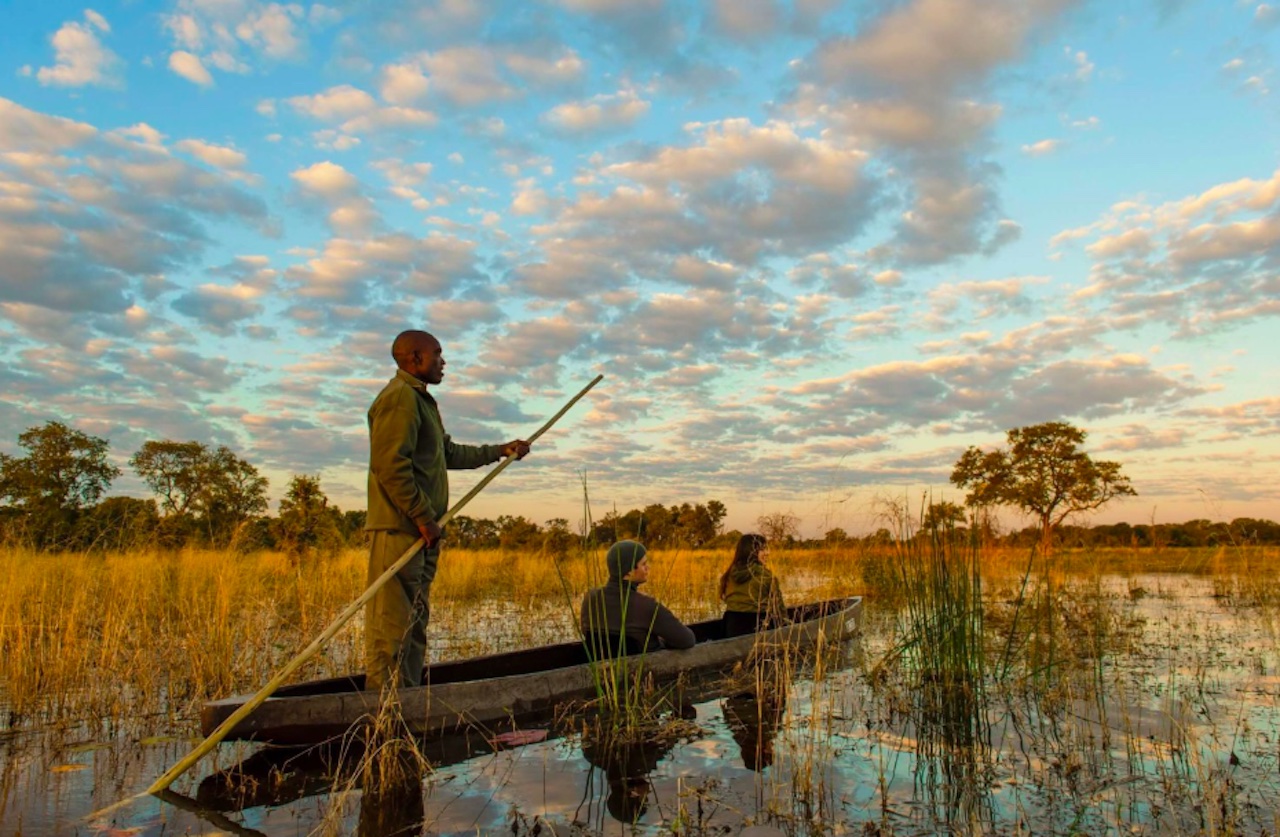
Above: Isn't it time you joined us on safari? Experiencing a mokoro is one of the highlights of the Okavango Delta, Botswana
Akagera Elephant Project, Rwanda
In 2018, we started the Akagera Elephant Project in Rwanda, looking for ways to provide useful conservation information through citizen science, both with the help our safari guests and the local guide co-operative. In December, thanks to donations from two of our guests in Singapore, I was able to provide training in elephant identification for five local guides and a park staff member. The project has identified about 80 elephants for the database so far, of which about half are complete IDs, but it's a work in progress and it relies on the local people on the ground to keep updating it with high quality photographs of the elephants' ears and tusks. It's not an easy task. First you have to find the elephants! Trust me, in the thick bush and swamps of Akagera that's not simple and even gigantic animals like elephants can be hard to spot. Then they have to be in the right position to photograph with the ears out and facing you head on so you can see the symmetry of the tusks. Rarely do all the elephants in a herd make themselves visible from sightings on the road, and the research is limited to roads as it's a national park so there's no off-road driving allowed. Only a few of the Akagera guides have good cameras with long lenses, which has made getting good photographs a challenge. But the most inspiring thing about the project has been seeing the enthusiasm of the local guides and our guests in learning more about the elephants. We've all been on the journey together and being able to produce six local trainers in elephant identification through the project, who are now sharing that knowledge with other guides, has been a great result.
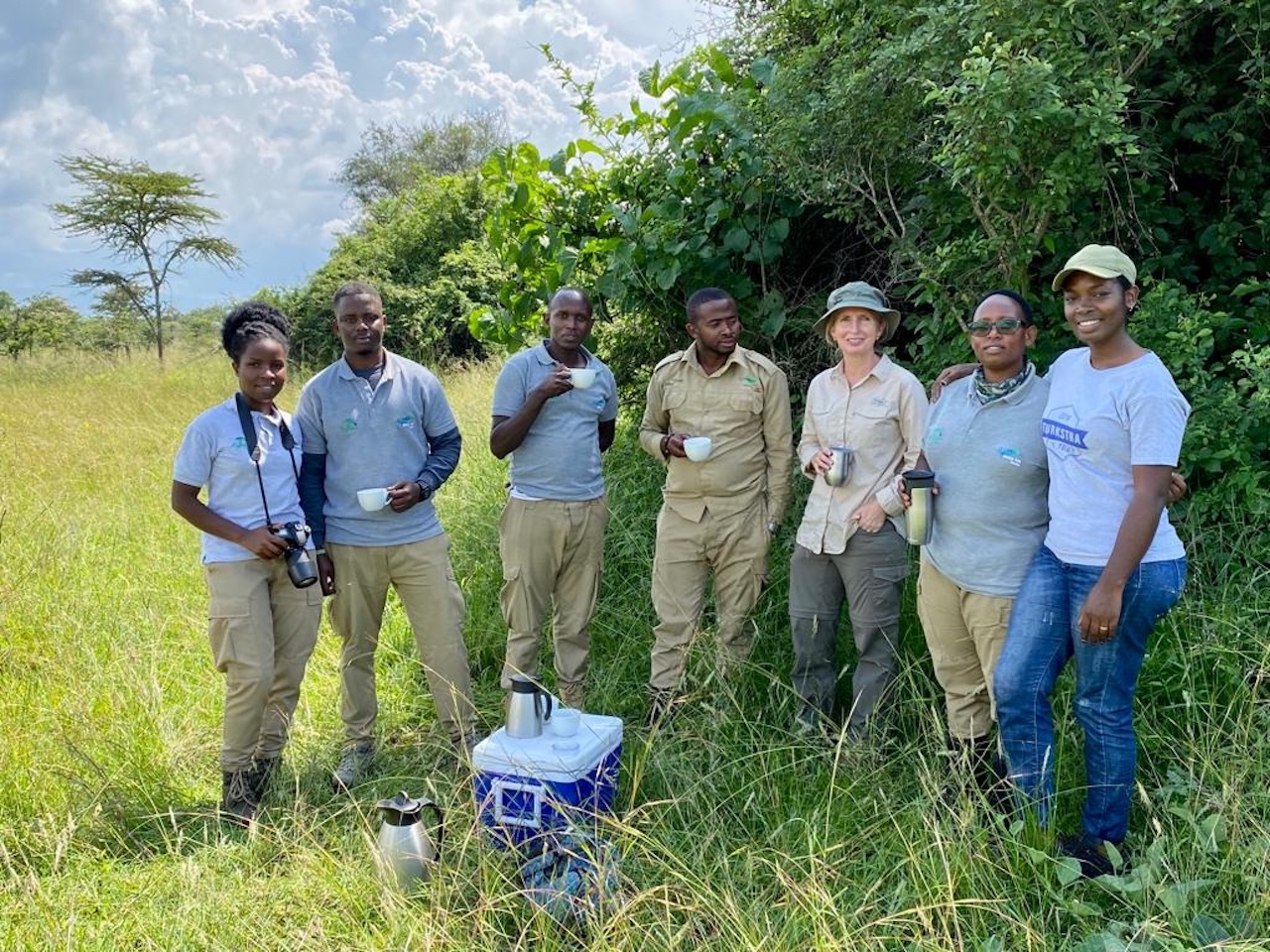
Above: Participants in the practical elephant ID training in northern Akagera, December 2022. (Left to right: Clementine Mugwaneza, Robert Muvunyi, Samuel Munyaneza, Cesar Benurugo, Tammie Matson, Peninah Kamagaju, Diane Umatoni)
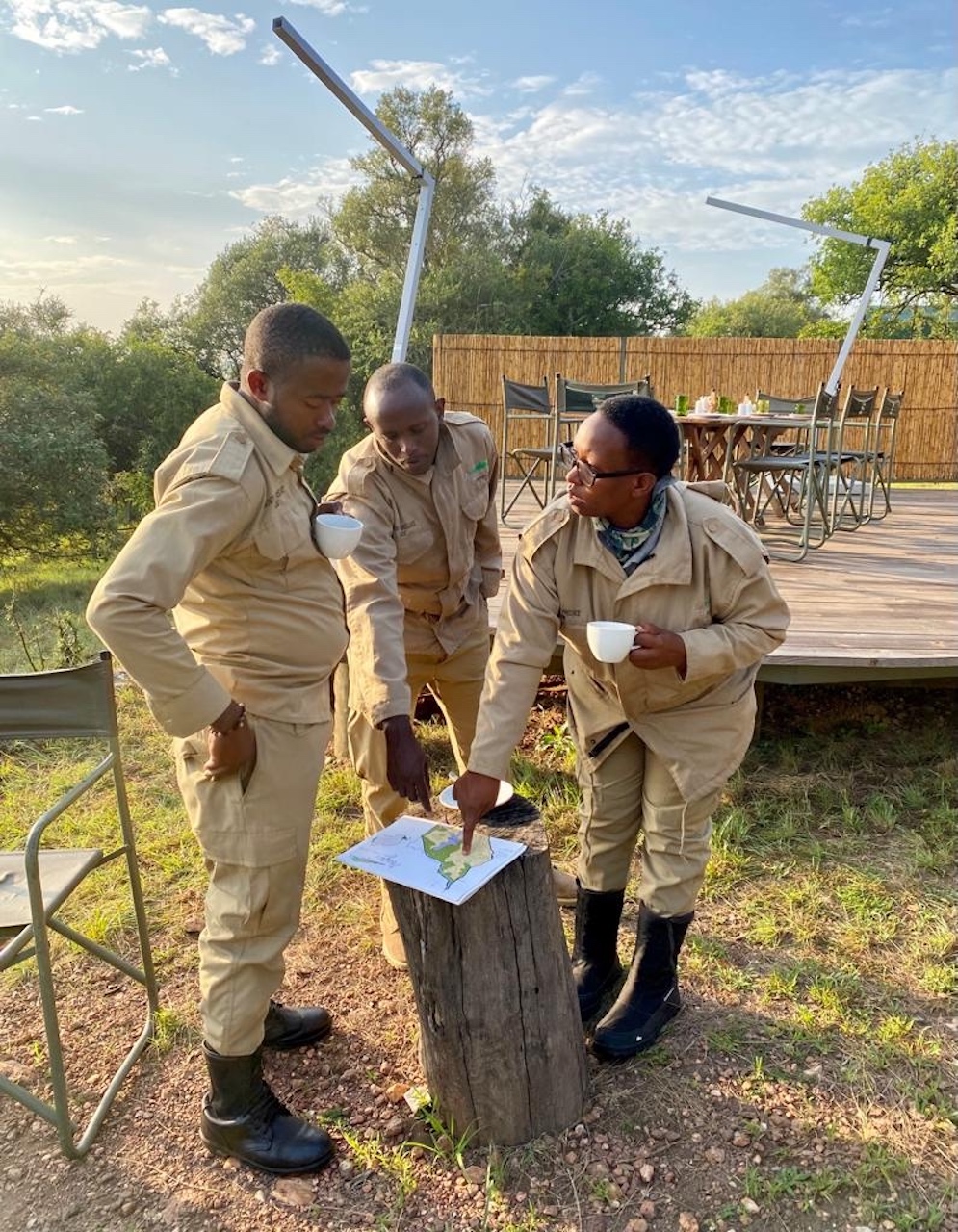
Above: Peninah, Sam and Cesar discuss where to find the elephants during guide training in December 2022
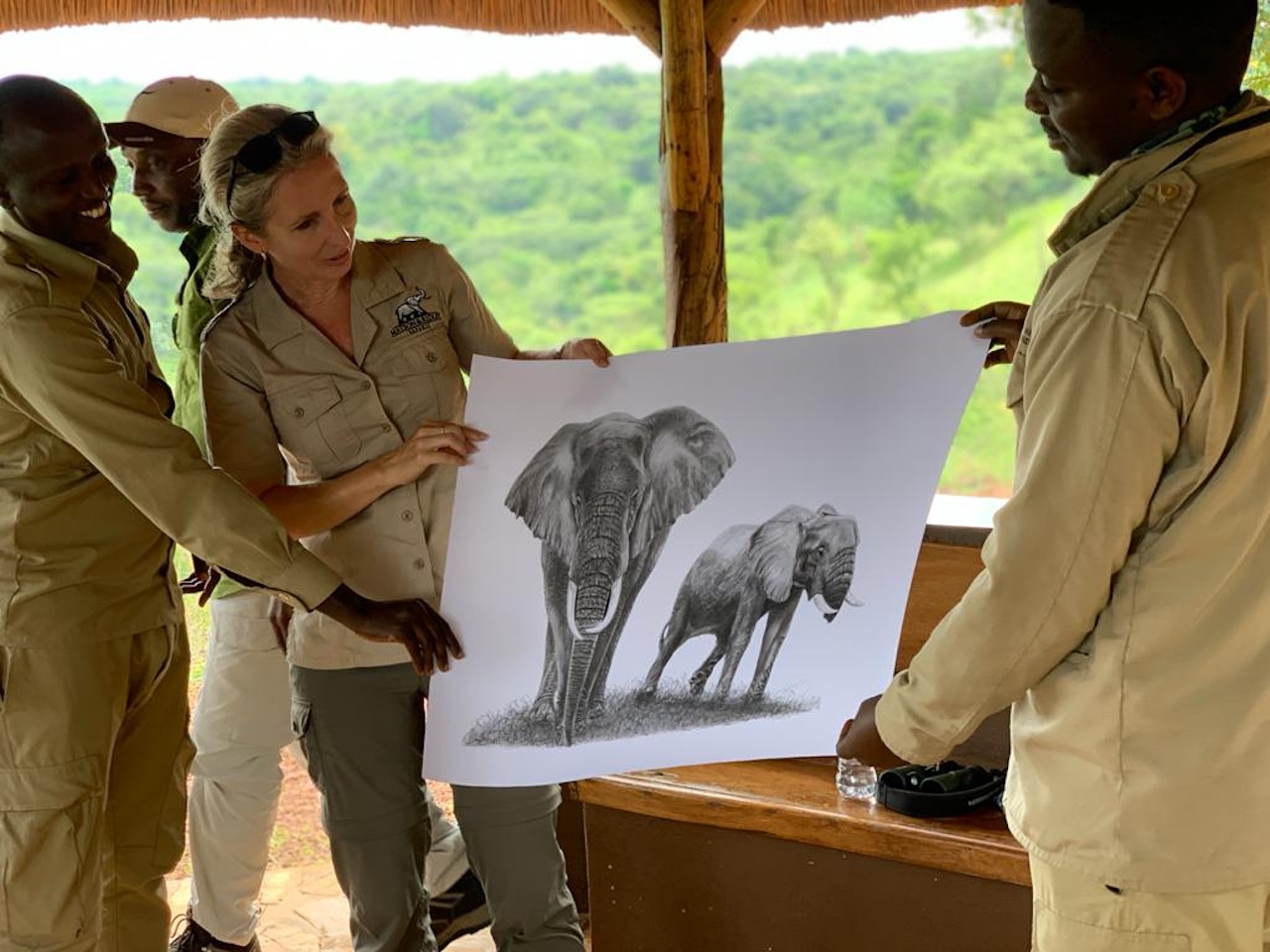
Above: I was honoured when presented with this beautiful hand drawn art work by a local Rwandan artist by the Akagera guides in December 2022
Upcoming Safaris
In just a couple of months I'm off to Botswana for a long-awaited safari with my group from Singapore, Hong Kong, Melbourne, Sydney, Japan, UK, Dubai and Canada! It's that time of year again when we announce our group safaris for the year ahead, so please read on if you are thinking of an African safari in 2024.
Next year I'll be running a group safari for up to twelve people in Botswana from 14th June. We are taking bookings for this journey now, and it already has several places taken, so please don't wait to book your spot. The journey includes the option of either seven or nine nights on safari in one of Africa's most exclusive, diverse and fascinating wildlife areas. The main seven night journey focuses on the stunning Khwai Private Reserve, including three quite different safari camps in quite varied habitats.
Our first camp, Hyena Pan, is set in the mopane woodlands overlooking a lagoon that the elephants simply love. You barely need to leave your room to experience the wildlife in this camp as the lagoon is the only water around for miles, providing a major attraction for the animals. Then it's off to Little Sable Camp, a truly authentic Okavango experience where we will be able to drive, boat and mokoro our way to see the wildlife. The traditional dug out canoe experience at Little Sable ('mokoro') is a highlight of this area. While in this area we'll spend a night at the iconic Skybeds. This is an experience no other. Spend a night under the stars in one of only three luxurious towers designed to give you the most amazing views of a waterhole frequented by all sorts of animals, from African wild dogs to elephants.
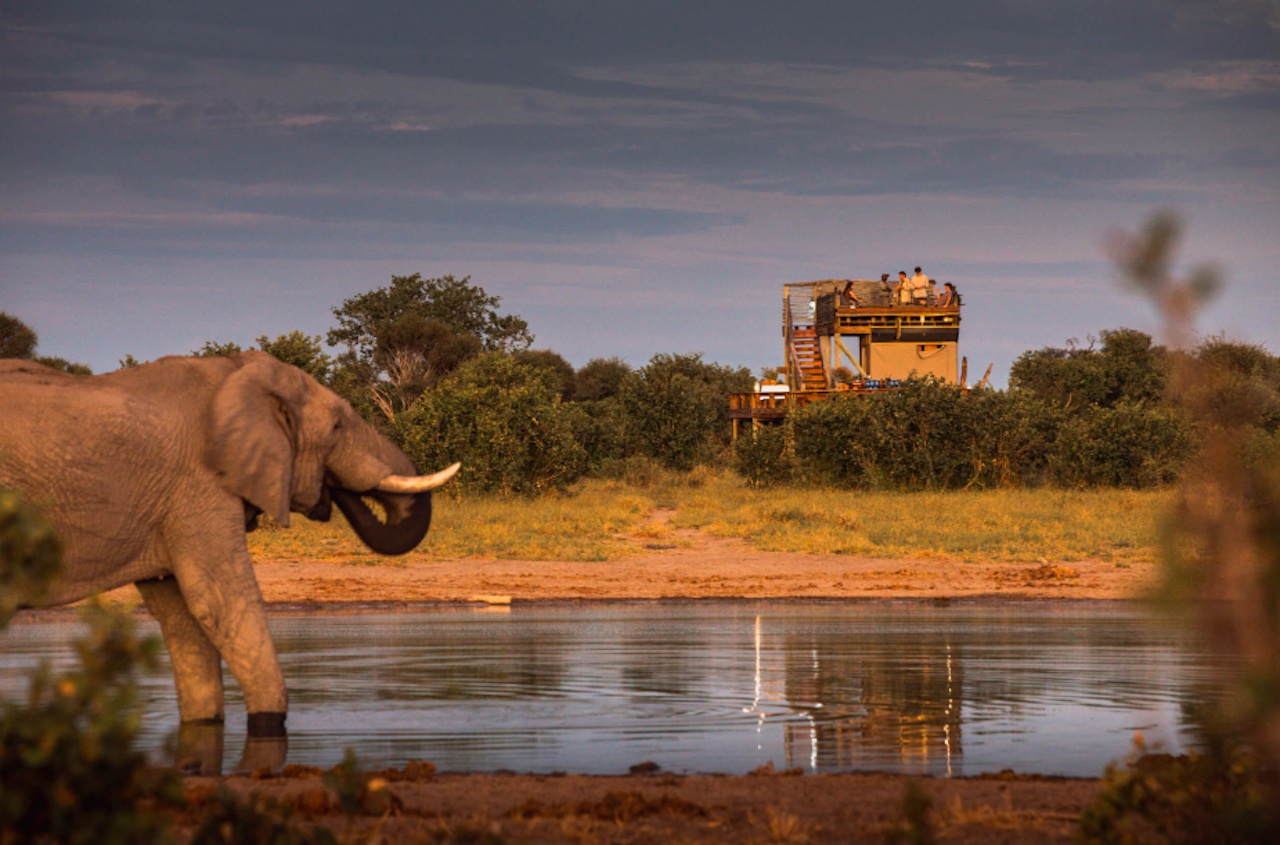
Botswana is famous for its elephants, having the largest population in all of Africa, but Khwai Private Reserve is also known for its African wild dogs, lions, hyenas, leopards, sable antelope and so much more. We will be in Botswana at the time of the great zebra migration, so if you would like to extend your safari by two nights, we are offering a two night stay at Meno a Kwena Camp to be included to experience a dazzling display of zebras, more than you can imagine. Contact me for the itinerary and let's make your dream safari happen!
This safari contributes 1.5% plus US$50/night/guest to the conservation and community projects undertaken by the Natural Selection Foundation, which includes work on community conservation education, African wild dog, giraffe and leopard research and anti-poaching efforts, just to mention a few. Find out more about Natural Selection's projects and see how your safari makes a difference on the ground. They support over 94 initiatives in Botswana, Namibia, Madagascar and South Africa.
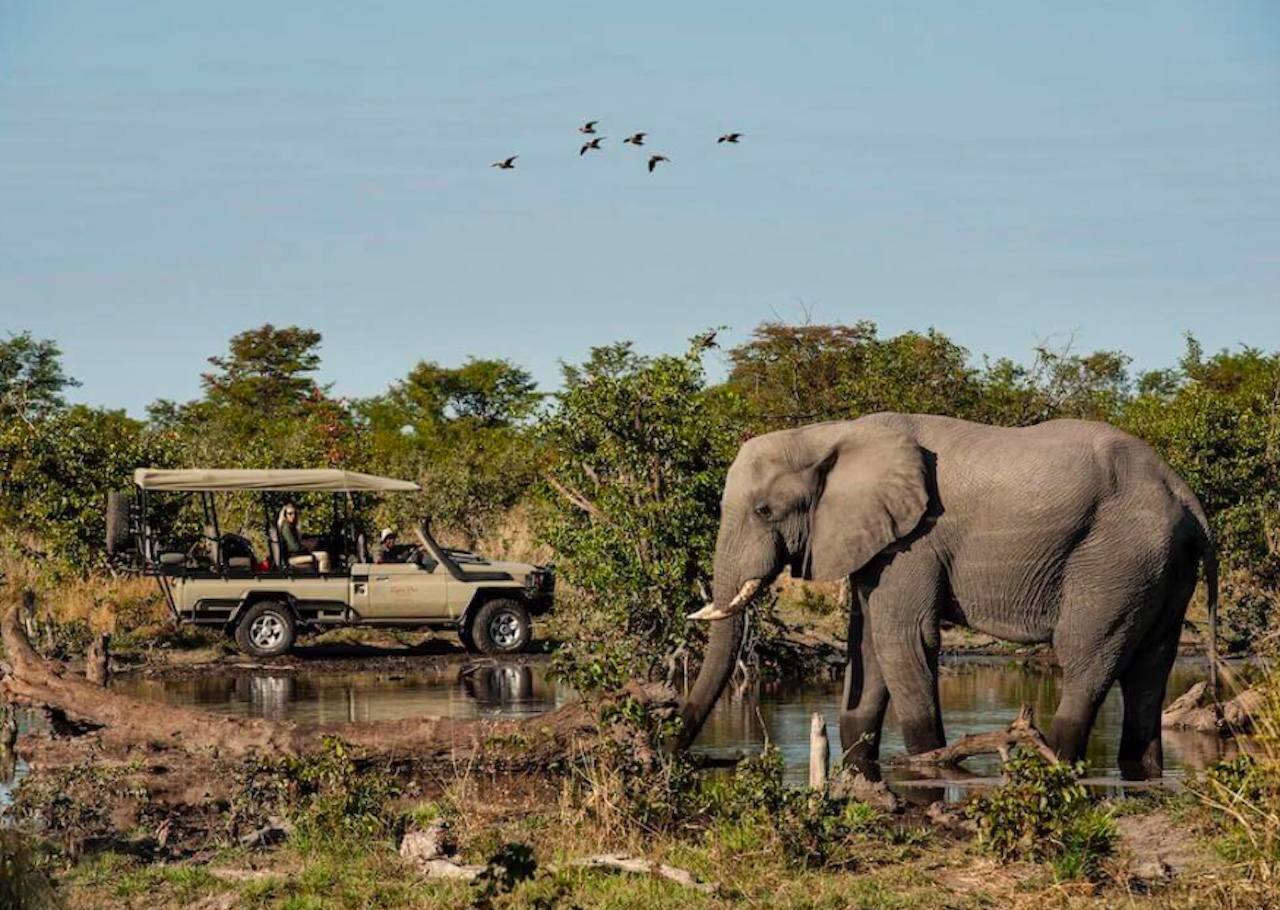
Contact us now to book a bespoke safari on dates that suit you or to join one of my small group journeys in 2024. The right kind of safari can provide significant benefits to ensure local people benefit from the conservation of Africa's wildlife, and that's what it's all about. After all, we all want to live in a world with elephants and lions in the future. By going on a conservation-focused safari you'll ensure that your hard-earned dollars are contributing to the kind of future we all want to see for Africa.
